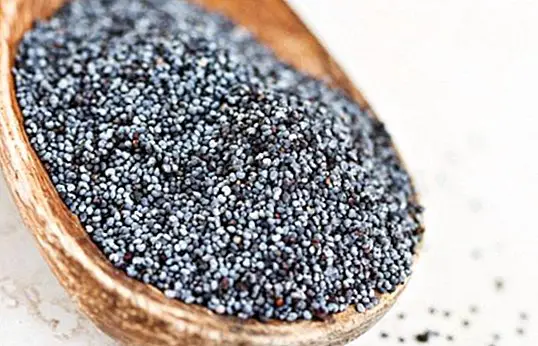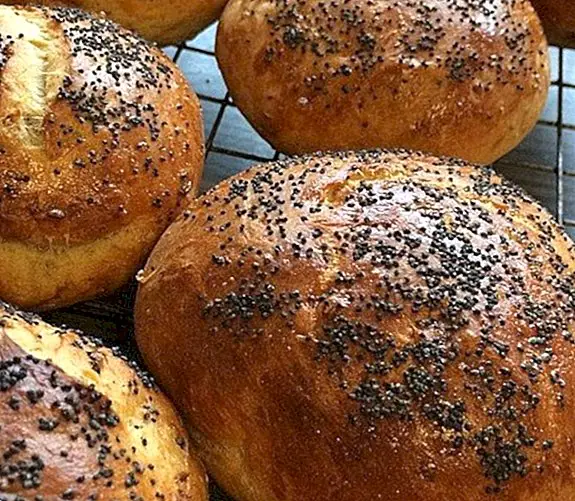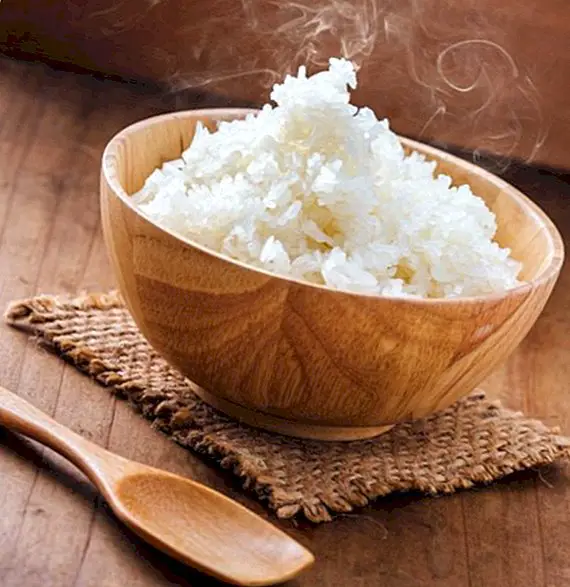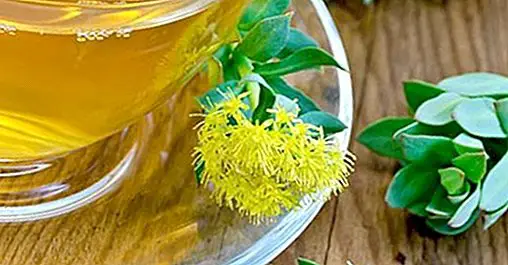Poppy seeds: benefits and properties
The poppy It is a wonderful plant, which has a characteristic red color and is found mainly in Eurasia and in North Africa, although today it is possible to distinguish it in most countries. It is scientifically known as Papaver Rhoeas, and presents some seeds highly appreciated both in the kitchen and from a medicinal point of view, thanks to its incredible properties and benefits.
In fact, although many ancient cultures used it as an ingredient in the elaboration of a great variety of recipes, such as the case of Chinese or Hindu culture, today there is no doubt that poppy seeds are one of those ingredients highly valued in the kitchen, especially for its versatility to be included in breads, cakes, cookies, soups, pastas and salads.

What are poppy seeds?
The poppy seeds come from the flower with the same name, which we find in each of the flowers. They have a size that is certainly small, black in color and tastes very similar to those of walnuts.
In the kitchen, as indicated above, they are widely used for their versatility and flavor. Hence, they are used for a very large variety of recipes, especially highlighting cookies, sweets and cakes. They are also used in the preparation of special breads and other foods, such as soups or pastas.
The properties of poppy seeds
Nutritional wealth
Poppy seeds are extremely rich in essential nutrients, indispensable within a varied and balanced diet. In fact, they provide interesting amounts of:
- Healthy fatty acids: the presence of omega-3 and omega-6 fatty acids stands out above all.
- Fiber: three tablespoons of poppy seeds provide 12% of the daily value of recommended dietary fiber.
- Vitamins: it highlights the presence of B vitamins (especially B1, B2, B3, B5, B6 and folic acid or B9), as well as vitamin E and C.
- Minerals: we can mention the content of magnesium, calcium, manganese, potassium, phosphorus, iron, zinc and copper.
Good for your cardiovascular system
For its content in essential fatty acids, especially Omega 3 Y omega-6, it is an indispensable food to take care of our cardiovascular system, and to maintain good cardiovascular health in the end.
Thanks to their content in healthy fats they are an excellent natural option when it comes to lower high cholesterol and triglyceride levels.
They help to strengthen the defenses
For the remarkable presence of vitamin C and vitamin E the poppy seeds help when it comes to strengthening our immune system and increasing defenses in a totally natural way

Beneficial to the nervous system
Poppy seeds provide interesting benefits to enjoy a healthy and healthy nervous system, thanks to its content in certain alkaloids that help at the time of calm nerves, and help positively when it comes to relaxing our nervous system.
Therefore, a regular and daily consumption of poppy seeds is especially recommended in situations of stress and sleep problems, acting as a natural sedative.
How to eat them to enjoy the benefits of poppy seeds?
Actually there are several useful options to eat poppy seeds and enjoy their different benefits and properties. We highlight the most useful:
- In salads: You can, for example, add them to your salads. To do this, just add a handful of poppy seeds on top after seasoning.
- In soups and broths: it is another simple option. Just add a handful of these seeds over your soup or broth, which will give them a flavor similar to nuts.
- In cookies and cakes: although it is evident that it is not the healthiest option, if you choose to make cookies or cakes at home (which are healthier) you can add an extra flavor contribution with these seeds.
- In yogurt: you can choose a yogurt and a handful of poppy seeds for breakfast or snack, or simply as a snack.
- Solo: It is the easiest option. If you do not want to add it to any dish, you can take 2 tablespoons of poppy seeds accompanied by a glass of water or natural fruit juice. Of course, it is necessary to chew them well.
Images | iStock / Jody Morris This article is published for informational purposes only. You can not and should not replace the consultation with a Nutritionist. We advise you to consult your trusted Nutritionist. ThemesSeeds Food


